- Home
- Tim Lebbon
Dusk n-1 Page 3
Dusk n-1 Read online
Page 3
Let them talk about ruin and degradation and death. She would not let it happen to her.
He was still singing. The old man had been here for several hours now, hidden away behind those ancient shelves, humming words that Alishia could not quite grasp from the cool air. She tried, leaning forward on her chair with her head to one side, but her heartbeat smothered the echoes. It was as if being alive prevented her true understanding of the old man’s song.
So she tidied, cataloged, skimmed a few pages from a map book charting the progress of Noreela City’s ever-shifting river over the centuries, read a love poem by Ro Sargossa. But she could not ignore the singing, however hard she tried. Sometimes it felt as though it was inside her head; she could not hear it, but still it was there. Other times it came strong and loud, filling the library and sending many-legged things scuttling into the dark spaces beneath book towers.
At last, she decided that she had to find him.
Alishia rarely left her desk when there was no one to watch over it, but today was quieter than most-the old man was the only person she’d seen so far, and she guessed ten minutes away would do little harm. Besides, who would steal? Few in Noreela City had any inclination to even come in here and read a book, let alone await the opportunity to slink in and steal one when her back was turned. Sometimes she wondered whether there was any intellect left in a world where famine also starved the mind, and dust and fading gods ate away at the tenacity of the people.
She slipped from behind her desk, crossed the uneven wooden floor scattered with comfortable reading chairs-moth-eaten and rotting through lack of use-and passed between two tall towers of books.
She was in Geography. The books reached to the ceiling on both sides, those at the top hardly touched since the day she had started working here ten years ago. It was not that there was nothing of interest up there-Alishia suspected there were accounts of paths long since faded into time, trade routes discovered and discarded-it was simply that people seemed so lethargic that it was far easier to pluck a book from one of the lower shelves. There were six ladders scattered around, but three of these invariably leaned against the stacks of children’s books. These were soft and comfortable, cloth-covered pages, bendy and pliable for young hands to twist and young mouths to gnaw upon. When Alishia was not working, this was where Byran and Magella huddled away to screw and sleep and eat. Their thoughts rarely stretched any further.
Her footsteps, naturally soft anyway, were completely muffled by the stocked shelves. She breathed in the must of their pages, the musk of decades of damp and heat and damp again. Mold painted great swaths across the spines, interrupted here and there where a book had been removed and replaced in a different place. History nestled around Alishia, slowly moldering away just as the land was fading back into history. There was a certain poetic justice to that.
She paused, swept her long hair back over her shoulders to free her ears. The singing was still there, though even more muffled now that she had entered the maze of books. That was another thing she loved about the library: whoever had built it had given no consideration to order, arrangement or the need for browsers to be able to find their way out in less than a day. It was more than a maze; it was a conundrum of words.
Often when she ventured into the heart of the library she was sure she traveled a route she had never known before, a byway between alleys, ankle-deep in paper dust and redolent with the musings of yesteryear. This time a path between stacks led her not only left and right, but up and down as well. There were places where the floor dipped and raised, but she had never seen steps. She glanced at the books to see what strange subject could be stored in such an ambiguous place: needlecraft. Ten thousand books on sewing, knitting, tapestry, darning, skin-melding, hair-braiding and web-weaving.
On she went. And turning a sudden corner, she found him. She stopped and backtracked slowly, not sure whether he had seen her. His song did not falter, his voice unwavering, his mouth moving in rhythm with his hands. He sat amid a pile of books, manuscripts, torn pages and shredded sheets. He was a lump of flesh at the heart of a mountain of paper, a weak and yet terrible-looking man picking through remnants of history. Obviously he had yet to find whatever he sought.
He was in the far corner of the library building, perhaps aboveground, maybe below. The ceiling was low here and adorned with mineral stalactites, water stains mottling the stacked books and promising little but rot within their pages. This section, Alishia knew, was old magic. Hidden magic. Lost magic. Many people had forgotten about that, and so the area was only visited rarely. Those who did still study it often wished they did not.
The man rustled his way through another sheaf of pages, discarding them at random. They fluttered down around him like dying butterflies. He spent very little time on each page, certainly not long enough to read even a tenth of what was written. He must, Alishia knew, have a very definite idea of what he sought.
Lost magic.
But why here? Seeking a truth about his childhood, or that of his parents? Trying to find the route to the missing history of his clan? Or simply curious?
Dust. That was one of the curses of the library. Scraps of paper and the shed skin of those who had written or read the books over the centuries, all existing in an enclosed, still atmosphere. Alishia breathed in and felt the first tickling signs in her nose. At the same time she saw the old man pause in his search, his eyes widen, his hands grip tightly around the book in his lap. Alishia’s nose twitched and itched, pressure built behind her face, her eyes began to water with the strain of withholding the sneeze.
The man stood. Torn papers fell from his lap, the book held out at arm’s length like a carrier of some horrible contagion.
Alishia turned and ran. The sneeze exploded. She tried to keep it muffled behind her hands, she had turned several corners already, the book stacks should have absorbed the sound…
… still, he may have heard.
Alishia wondered why she even cared, but at the same time she knew: her instinct told her that the man brought danger. She hurried back through the maze of books and dust and age, turning corners, desperately relieved when she found a familiar row that led back out to the open area around her desk. Once there she rooted around beneath her desk, closed her hand around the hilt of the old knife wedged in between two piles of books beneath the scored wooden top. And she gasped as the man walked around the corner.
He was sweating. He must have been running to have arrived so quickly behind her, but what she found more worrying was that he tried to hide this fact. For a second she was undecided-stand with the knife, or let it go and face whatever threat he may pose?
He decided for her. “Nothing,” he growled without even glancing at her, the language obviously alien to his lips. He walked past, so close that she could smell his sweat and fear. He was scared. She wondered whether she smelled the same to him.
Alishia said nothing, even though she could plainly see the book slung under his arm like a recent kill. She watched with a mixture of relief and embarrassment as he paused at the door, picked his bloodred robe from a hook on the wall, shrugged it over his shoulders and left. As he exited into the sun he turned the hood up over his head.
A Red Monk? Alishia thought. She had read passing reference to them in several books, but little was known about them other than they were mad. And deadly. But the man had gone, and Alishia breathed a sigh of relief and thought: Thank my heart. Thank my lucky heart.
ALISHIA CLOSED THElibrary early that afternoon. The strange experience with the old book-thief had shaken her more than she cared to admit. Besides, nobody would notice, and if they did they would not say anything. And even if they did it would not matter.
The entrance to the library was below the road, and as she climbed the worn stone staircase, Noreela City revealed itself. Many years ago-centuries before her birth-she would have seen spires and arches and domes from the first step, but over the years since the Cataclysmic War they had crum
bled into disrepair, or been pulled down when they became unsafe. Now the first she saw of the surrounding buildings was as she mounted the fifth step and the Tumbling Window of the courthouse stared down at her. In her time she had seen many criminals-murderers, rapists, pseudo-magicians-pushed from this high window. Some of them died on impact. Others, the unlucky ones, clung to life for days, bleeding across the stones, untouched and unaided. The really unlucky ones were taken by dogs in the night.
Great place to work, Alishia thought for the thousandth time. Opposite a slaughterhouse. Because that’s all it really was. She had once seen a man shoved from the Tumbling Window for stealing coins from a street trader to buy rotwine. His wife stood and watched as he fell, his knees popping, ankles breaking, ribs cracking inward and spearing his lungs. She squatted by his side as he gasped bloody bubbles into the heat of the noonday sun. Then she smiled and left him to die alone.
These were bad days indeed, and Alishia knew how lucky she was to be the librarian, in charge of one of the least-visited buildings in the city, unknown by most, usually ignored even if someone did recognize her. Perhaps people believed she would have them arrested for talking in her hallowed hall of books.
As she started down the street she realized how pleased she was to be out of the building. It was an alien feeling because she loved it in there, but today had been tainted by the activities of the weird old man, and she felt lighter of step and heart now that she was away. Even Noreela City-dark, dilapidated and sad-was welcoming in its own strange way. Perhaps she really had escaped some awful danger. Whatever the reason, she felt an unaccountable high, unhindered by the constraints of worry and stress.
A woman passed by, trailing a snake of children behind her, all of them painfully thin and pocked with weeping sores. The woman was a barrel of a person, rolling along with great strides. Her jowls almost touched her chest, which itself could have easily harbored a herd of tumblers beneath its mammoth overhang.
“Spare some tellans,” the woman croaked, “we’ve not eaten for a week.”
Alishia could see the truth of the statement in the children’s eyes, and the lie in the woman’s.
“I’ll give the kids tellans,” she said, reaching into her backpack.
“They’re my kids.”
“All of them?”
The woman refused to look away. No shame. “Some of them.”
“I’ll give the kids tellans,” Alishia said again, and the woman nudged her aside with one fleshy elbow and continued on her way. As the line passed her by, Alishia rustled in her bag. She gave the last child-a pale-faced, sad-eyed boy-a sprinkle of silver tellan pieces. He smiled his thanks but it did not reach his eyes.
Alishia stood in the shadow of an abandoned shop and watched the straggly line disappear around the corner. There were other people on the streets now, sleepwalking from buildings at the end of a day’s work, little to look forward to at home, even less in the bars, where all the talk would be of failing crops and how the tumblers in the hills were taking more children and elderly each month. There would be arguments between those who believed it was due to the carnivorous plants being more confident, and those who blamed the Cataclysmic War. That old war, ended long before anyone alive now had been born, had replaced the gods as the ultimate scapegoat.
Alishia believed both were true. One fed the other.
Bad days indeed.
ALISHIA SLEPT ABOVEa stable on the outskirts of the city. It was cheap for two reasons: first, the stink of horses was rank and the noises unpleasant; second, the nearer the edge of Noreela City, the more dangerous a place could be. There were stories of Noreelans being dragged from their beds by mountain bandits, raped and eaten, only their heads and feet remaining when they were discovered days later (the heads because they were full of impure thoughts; the feet because they had walked in shit). There were all manner of unpleasant stories abroad these days, but that did not necessarily make this one a lie. Alishia slept with a knife beneath her pillow.
Most mornings she was woken by the horses stirring and shitting and being fed by Erv, the stable lad who had more than once tried to force his way into her room. She would stir slowly, listening to Noreela City waking up around her, smelling breakfasts cooking on iron skillets in the streets, tasting the rankness of the stale food she’d eaten the night before. Erv would talk louder than he had to and exercise the horses below her window when she was dressing. She always kept her knife close at hand. Erv was a nice lad on the surface, but his eyes shone with lawlessness.
This morning, however, something else brought Alishia from dreams of a field sprouting rotten corpses. She was glad to be awake, but for an instant she thought she was still in her dream. She could smell the acidic scent of burning. There was shouting coming from an unknown distance, the meaning of words stolen by street corners. But panic in the voices could not be disguised.
Instinct told Alishia that it was still the early hours and yet she could see around her room. Her clothes were in a careless heap on her chair, like a figure collapsed from exhaustion. She stared at them and they moved.
Her hand slid under the pillow so quickly that she pricked her finger on her knife. She yelped and fell from the bed, never taking her eyes from the shape on the chair, pulling the blade from beneath the covers and cursing when they entangled her hand, panicking and twisting the blankets more, expecting at any second-
But they were only her clothes, and the illusion of movement was given by the flickering light outside. The shifting, wavering light of a fire. A very big fire.
Alishia rushed to the window, completely forgetting her nakedness and the possibility of Erv already being in the yard below. The city glowed in the night, lit from the center by a huge conflagration. It was not the location that convinced Alishia that it was the library. It was not even the disturbing events of yesterday. Ash revealed the unbearable truth. That, and the thousands of burning pages fluttering in the air like incandescent birds.
“No!” she said, instantly thinking of the man in red with the broken book beneath his arm. “Oh no!”
Outside, fire turned the nighttime streets to dusk. People bustled and hurried and there was a surreal, almost carnival atmosphere as Alishia pushed her way through the dawdlers and curious. Food vendors were hurrying toward the fire, pushing their carts before them, obviously anticipating a profitable day. Families were trailing along the streets, moving aside whenever a horse-drawn cart came by, babbling excitedly the nearer they came to the conflagration. Alishia tried not to cry, but the smoke stung her eyes, so at least she had an excuse. Her rough cloth dress itched and scratched where she sweated, perspiration dripping with her tears to the old stone streets of a city that had been neither kind nor cruel to her, merely indifferent.
It seemed that this night, that state of affairs had changed.
As she entered one of the east squares and fought her way through traders setting their market stalls for the day, a cry went up. “Fire!” someone shouted, others echoed it, and Alishia almost laughed out loud. The column of smoke already reached the heavens, flames licked and danced at its base and the stench of burning overrode even the warm tang of oiled spices and freshly squeezed rhellim. How could they only now acknowledge its existence? But then she saw the flaming stall in the corner of the square, and she understood. Before, the fire had little to do with them. A distraction, a novelty, something to chat about while they awaited their first customers of the day. Now it had touched one of them by sending down a flaming page from a book, kissing a stall-covering alight, seeding itself away from the library. The threat of it engulfing all of their lives became immediately apparent. A couple of the traders rushed to help the frantic owner haul what she could away from the voracious flames, but most merely tried to protect their own stalls. They threw buckets of water across the canopies, packed away stock, calming their mules as best they could.
More flaming confetti floated down from the sky. Some of the little fires had burnt themselve
s out before they hit the ground, but a few-those feasting on a particularly rich history text, perhaps, or those with several pages stuck together by time-blazed into whatever they touched.
A man bashed at his own head to put out the flames in his hair. A woman squatted and pissed on her burning furbat. Novelty mutated into panic as the whole city seemed to speed up. Where people had been walking they now ran, where they’d been running they were now sprinting, whether toward or away from the fire. Water carts careered through the streets. Barrels bumped and spilled their precious cargo back into the gutter, and by the time Alishia had run to the fire, there were already several wagons parked around the old, misshapen library building. Groups of sweating men and women swung buckets back and forth, fire glinting on their strained faces, skin seeming to stretch and redden even as they worked.
Hopeless, Alishia knew. All hopeless. There were a billion places for the flames to hide, and even if they did manage to douse the conflagration and drown it from the fabric of the building, the books would smolder and simmer inside, the fire biding its time, ready to leap out and finish the destruction as soon as their backs were turned.
Why she personified the blaze she could not guess. It scared her at first, giving it a soul, an aim, a cruelty that she could barely comprehend. But then she thought of the man in red as he had left her library, the broken book beneath his arm, the torn and tattered pages he had been sitting amongst when she crept between the stacks to spy upon him. Nothing, he had said, but he had been lying. He had found something. And once that something left the library with him, perhaps there was no reason to leave anything else behind.

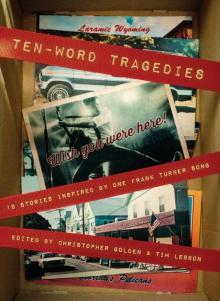 Ten-Word Tragedies
Ten-Word Tragedies Predator: Incursion
Predator: Incursion Relics--The Edge
Relics--The Edge Firefly
Firefly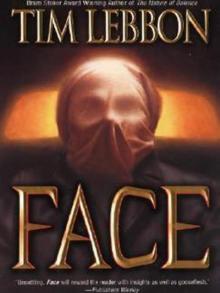 Face
Face Generations
Generations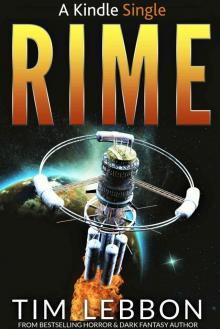 RIME (Kindle Single)
RIME (Kindle Single) Fallen
Fallen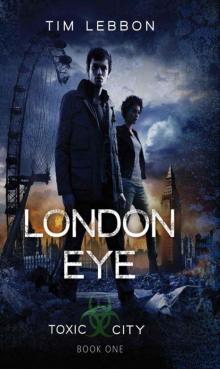 London Eye tc-1
London Eye tc-1 Kong: Skull Island
Kong: Skull Island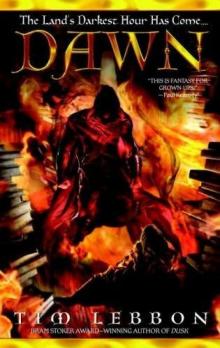 Dawn n-2
Dawn n-2 Into the Void: Star Wars (Dawn of the Jedi)
Into the Void: Star Wars (Dawn of the Jedi)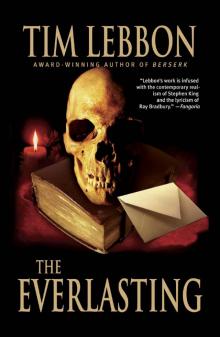 The Everlasting
The Everlasting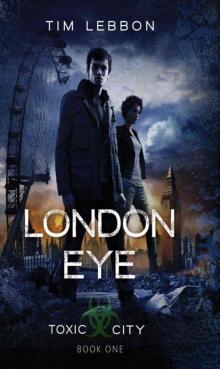 London Eye: 1 (Toxic City)
London Eye: 1 (Toxic City)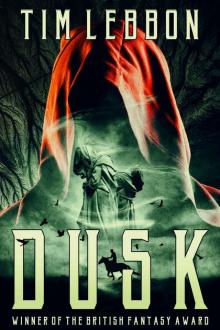 Dusk: a dark fantasy novel (A Noreela novel)
Dusk: a dark fantasy novel (A Noreela novel)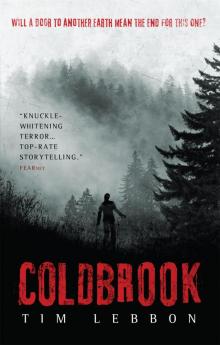 Coldbrook
Coldbrook Alien
Alien Dusk
Dusk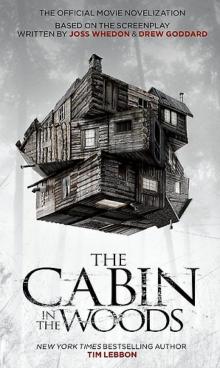 The Cabin in the Woods
The Cabin in the Woods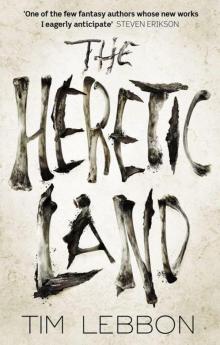 The Heretic Land
The Heretic Land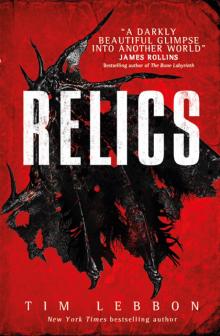 Relics
Relics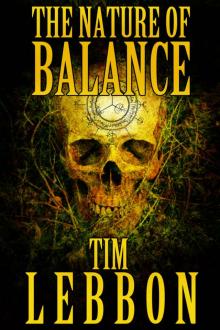 The Nature of Balance
The Nature of Balance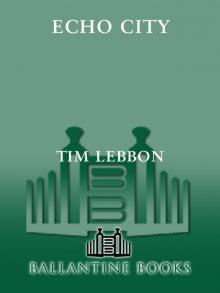 Echo City
Echo City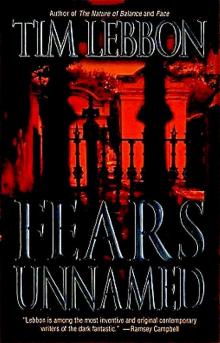 Tim Lebbon - Fears Unnamed
Tim Lebbon - Fears Unnamed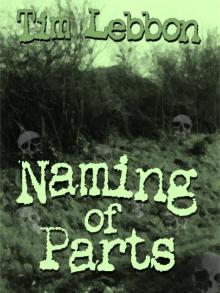 Naming of Parts
Naming of Parts Alien--Invasion
Alien--Invasion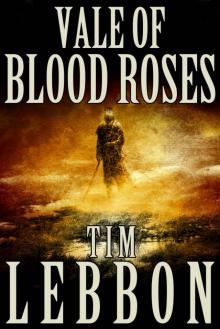 Vale of Blood Roses
Vale of Blood Roses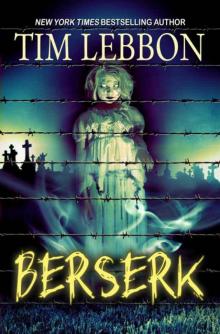 Berserk
Berserk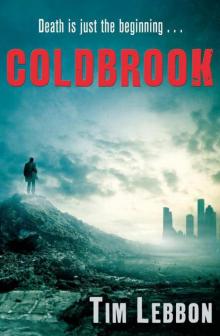 Coldbrook (Hammer)
Coldbrook (Hammer)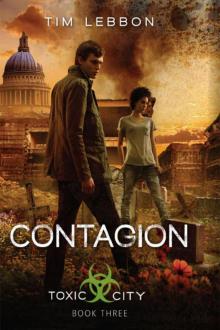 Contagion tc-3
Contagion tc-3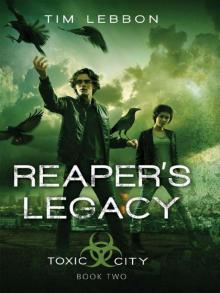 Reaper's Legacy: Book Two (Toxic City)
Reaper's Legacy: Book Two (Toxic City)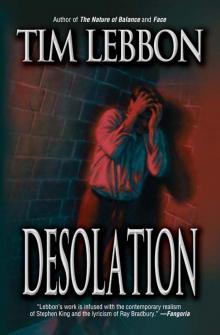 Desolation
Desolation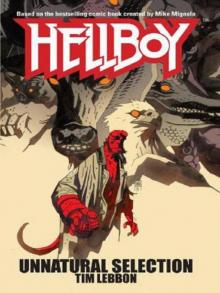 Unnatural Selection
Unnatural Selection Predator - Incursion
Predator - Incursion London Eye
London Eye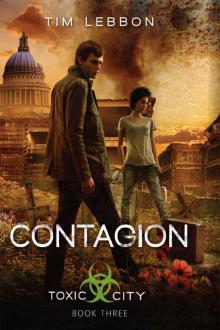 Contagion (Toxic City Book Three)
Contagion (Toxic City Book Three) The Silence
The Silence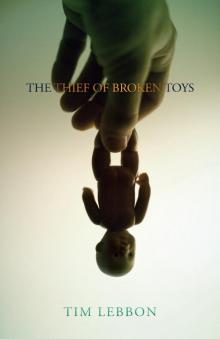 The Thief of Broken Toys
The Thief of Broken Toys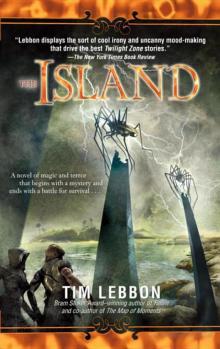 Tales of Noreela 04: The Island
Tales of Noreela 04: The Island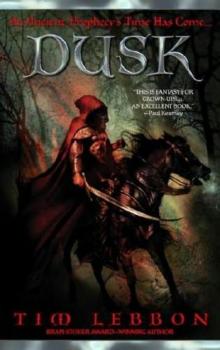 Dusk n-1
Dusk n-1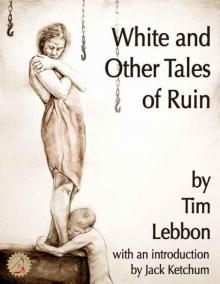 White and Other Tales of Ruin
White and Other Tales of Ruin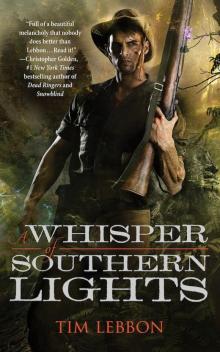 A Whisper of Southern Lights
A Whisper of Southern Lights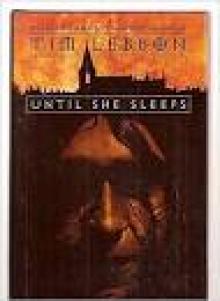 Until She Sleeps
Until She Sleeps Relics--The Folded Land
Relics--The Folded Land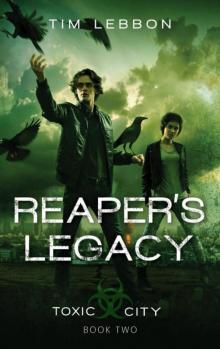 Reaper's Legacy tc-2
Reaper's Legacy tc-2 Alien: Out of the Shadows
Alien: Out of the Shadows Pieces of Hate
Pieces of Hate X-Files: Trust No One
X-Files: Trust No One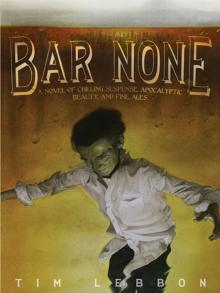 Bar None
Bar None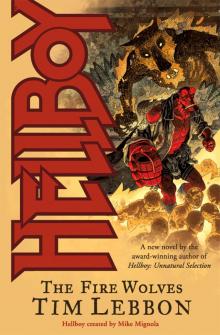 The Fire Wolves
The Fire Wolves